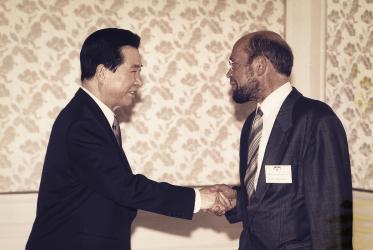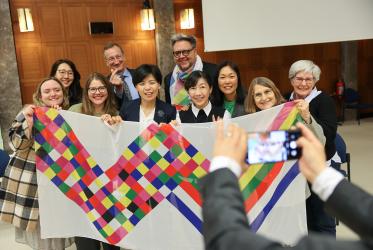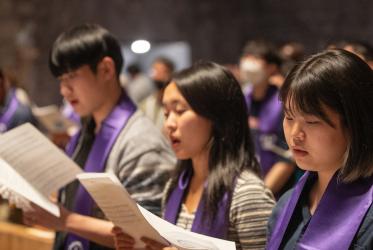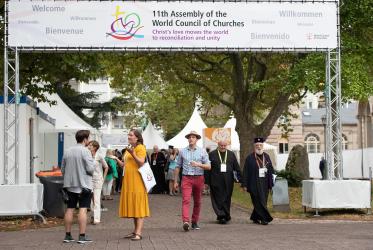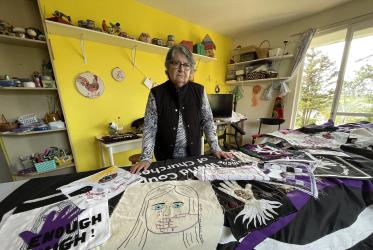Displaying 1 - 20 of 24
Ecumenism in the Philippines means hope and resilience
22 August 2023
Squid Game and Ganggang Sullae: workshop reflects on youth poverty
16 September 2022
Side-by-side, they pray for peaceful unification of the Korean Peninsula
06 September 2022
Unity is key when health crisis poses new challenges in Asia
28 February 2022
